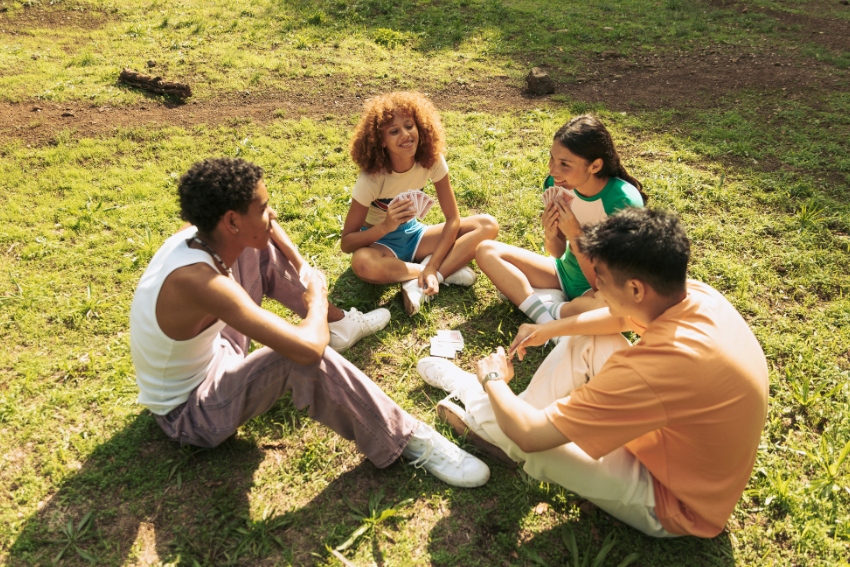Summer Learning Made Easy for Parents – Must-Try Activities
We’ve worked so hard during the school year. What if all the knowledge my child gained just… evaporates in the summer sun? Once the UK school holiday dates are marked on the calendar, that long stretch of free time can feel exciting but also a little daunting.
If you’ve ever caught yourself fretting over the infamous ‘summer slide’, you’re not alone. With school out and our children relishing their well-deserved break, keeping educational momentum going can be a daunting task.
But worry not! We’re here to share some clever, creative, and most importantly, fun-filled ways to maintain and even build upon your child’s learning during the summer months. It’s all about making learning an adventure, not a chore. So grab a cuppa, and let’s delve into a summer filled with joy, exploration, and delightful discovery!
Understanding the Summer Slide

The term ‘summer slide‘ may bring to mind a fun-filled trip to the water park, but in educational circles, it signifies a very different kind of phenomenon. The ‘summer slide’ refers to the academic regression that children often experience during the summer holidays.
Studies published in the American Education Research Journal have found that school-age children can lose up to 40% of the educational gains they made during the previous academic year over the summer break. This is significant because teachers then spend a portion of the new school year revisiting old material, thereby slowing the pace of new learning.
This is particularly concerning in the wake of the disruptions to learning caused by pandemic-related school closures and the transition to remote learning. According to a report by McKinsey & Company in April 2022, students in the K-12 range in the US were found to be falling behind by an average of four months across all subjects.
Even though the situation in the UK might be slightly different, our children have faced similar challenges with remote learning and school closures. The disruption to routine and structure is enough to cause a slip in educational progress, making the ‘summer slide’ a topic of concern for UK parents too.
Particularly, subjects like Mathematics, which are often practiced more in school than at home, see a significant slide. Therefore, keeping our children engaged in learning activities during the summer months is a useful strategy to combat this ‘summer slide’ and keep their minds sharp and ready for the next academic year.
Parent’s Perspective: Balancing Leisure and Learning
As parents, we often find ourselves in a bit of a conundrum during the summer holidays. On the one hand, we want our children to enjoy their break, soak in the sunshine, and be free from the academic rigours they’ve been grappling with during the school year. On the other hand, we don’t want them to fall into the trap of the summer slide, losing the valuable knowledge and skills they’ve worked so hard to gain.
Julie, a mother of two from London, sums up this sentiment quite aptly. “While I want my kids to use their summer to relax and recharge, I don’t want them to become glued to the television or lose themselves in an endless cycle of video games. I want to use the summer to keep their minds active and enriched, but without making it feel like school.”
Indeed, achieving this delicate balance can feel daunting, especially when children are naturally inclined to view summer as a time for complete relaxation and freedom from learning. However, the good news is that learning doesn’t have to be boring, and it certainly doesn’t need to feel like schoolwork. There are many innovative ways to integrate learning into summer activities that are fun, engaging, and far from tedious.
Engage with Books – Local Library Activities
The humble library – often underutilised, yet brimming with potential for stimulating a child’s love for learning. And summer is the perfect time to reacquaint your children with the joy of diving into a good book.
Many local libraries in the UK host summer reading challenges for kids. These are an exciting way to keep your child engaged with reading, without it feeling like a school assignment. These challenges usually involve a checklist or a progress chart, allowing kids to track their reading journey. As they progress, children often have the chance to earn rewards or prizes, making the experience even more enjoyable and encouraging them to read more. For more ideas on how to keep kids reading this summer, check out our dedicated guide with proven strategies that make reading fun and engaging.
Take the time to visit your local library with your kids. Allow them to choose their own books. This sense of autonomy and control in their reading choices can further fuel their interest and enjoyment. From thrilling adventure novels to fascinating non-fiction, there is something to capture every child’s imagination.
If physical visits to the library aren’t possible, there are numerous online resources to explore. Websites such as Oxford Owl provide free access to e-books for children aged 3-11, categorised by age and reading level. These resources can be a fantastic way to widen your child’s reading range and to ensure they are reading books appropriate for their level.
Remember, reading isn’t just about keeping up with English literature skills. It promotes imagination, expands vocabulary, and introduces children to new ideas and viewpoints. And, perhaps most importantly, it can be great fun. So why not make a visit to your local library one of your first summer adventures?
Outdoor Adventures – Learning from Nature

Summer is synonymous with outdoor fun. The long days and warm weather offer the perfect setting for adventures beyond the confines of home. But beyond the enjoyment, the great outdoors can be a remarkable and captivating classroom.
One of the most simple yet rewarding activities is going for a nature walk or a hike. Exploring local green spaces, forests, parks or even your own garden can stimulate curiosity and deepen your child’s understanding of the natural world. They can observe plants, insects, birds and animals, learning about their characteristics, habitats and behaviours.
Consider equipping them with a journal where they can jot down observations or sketch what they see. You could also make use of apps like Seek by iNaturalist, which allows you to identify various flora and fauna by snapping a photo. This interactive way of learning fosters a keen interest in biodiversity and environmental conservation.
Stargazing is another fun outdoor learning activity. On clear summer nights, spread a blanket in your garden or any other open space and gaze at the stars. Apps like SkyView help young astronomers identify constellations, planets, and other celestial bodies. This can spark conversations about space, fostering an interest in physics and astronomy.
If you live near the coast, beach days can provide a range of learning opportunities, from exploring marine life to understanding tides. Trips to local farms or allotments can teach children about food production, seasonality, and the importance of sustainable practices.
Remember, outdoor learning activities offer not just educational benefits but also physical exercise and a chance to develop a lifelong love for nature. So, this summer, don’t hesitate to swap screen time with green time, and turn the great outdoors into your child’s open-air classroom.
Culinary Creations – Maths and Reading in the Kitchen
Step into the kitchen for your next summer learning adventure! The act of cooking and baking not only instils important life skills in your children, but also provides a delicious and engaging way to keep academic skills sharp during the summer months.
Inviting your children into the kitchen gives them hands-on experience with reading and mathematics. Each recipe is a comprehension exercise in disguise, requiring your child to read, understand, and follow a set of instructions. As they measure ingredients, they engage with practical maths, understanding fractions and volumes in a real-world context. Why is a half cup called so? What does it mean to double or halve a recipe? These become intuitive concepts when put to practice in the kitchen.
Even the act of shopping for ingredients can be an enlightening exercise. Have your children help calculate the cost of groceries, compare prices, or read nutritional labels. They’re learning to budget, understand value, and make healthy choices — all vital life skills.
If you have younger children, even pretend play in their toy kitchen can be a fun learning experience. Equip their play area with some real (but safe) kitchen tools like measuring spoons and cups, and watch them enjoy hours of imaginative and educational play.
Cooking also offers a chance for cultural exploration. Trying recipes from different cultures and countries can lead to discussions about geography, traditions, and languages, broadening their horizons one dish at a time.
So, roll up your sleeves and don your aprons. Transform your kitchen into a lively classroom where learning is as delightful as the culinary creations your child whips up. By the time summer ends, your child will not only have kept academic skills alive but also acquired a valuable life skill: cooking!
Constructive Fun: Building Projects for Brain Boost
Who knew that playtime could be so educational? Research shows that constructive play, such as building projects, can have significant benefits for children’s cognitive development, particularly in areas like maths, reasoning, and problem-solving skills. So let’s take a closer look at how you can incorporate more constructive fun into your child’s summer activities.
Starting simple is always a good idea. For younger children, building blocks can provide endless hours of fun while simultaneously promoting spatial reasoning, hand-eye coordination, and creativity. By stacking, balancing, and arranging blocks, children can learn basic maths concepts such as counting, sorting, comparing lengths and widths, and even beginning to understand fractions.
For older children, model kits or more complex building sets like Lego, Meccano or K’Nex can provide a more challenging building experience. They can follow complex instructions, problem solve when pieces don’t fit, and experience the satisfaction of completing a project. These activities also encourage persistence and patience, valuable life skills that extend beyond the maths classroom.
If you’re willing to think outside the toy box, why not consider DIY projects around the house? It could be as simple as assembling flat-pack furniture or creating a birdhouse or as ambitious as constructing a treehouse in your back garden. These larger projects often involve measuring, planning, and a whole lot of practical maths and physics. Plus, they offer a fantastic opportunity for family bonding and creating lasting memories.
Remember, the aim here isn’t to transform your child into a master builder overnight but to provide them with hands-on experiences that promote critical thinking and problem-solving skills. As they create, construct, and possibly even stumble and rebuild, they’re not just playing; they’re learning valuable skills that will help them excel in their academics and beyond. So this summer, let’s build memories and minds, one brick at a time!
Learning Through Visits: Family Field Trips
The summer holidays are synonymous with family adventures, and these excursions can offer rich, real-life experiences that inspire curiosity and stimulate learning in ways a classroom simply can’t. With a little planning and an explorer’s spirit, family field trips can transform your local community and beyond into an expansive, interactive classroom.
For starters, think beyond traditional museums and consider all the unique learning opportunities in your vicinity. Farms and gardens offer lessons about biology, ecology, and even economics. State capitols and historical sites provide a vivid way to delve into history and politics. And a trip to your local fire department can provide insight into community service and safety precautions. Every trip, every place has a lesson embedded within it!
Take advantage of local resources to make these field trips even more educational. If your community has a local tourism board or history association, they may have guides, worksheets, or activities designed specifically for young learners. Similarly, joining local parenting groups on social media platforms can give you a wealth of information about hidden educational gems in your area.
But family field trips aren’t just about visiting different places; they’re about creating meaningful dialogues with your children. Ask questions about what they observe, draw comparisons with what they’ve learnt in school, and encourage them to think critically about their experiences. These discussions will not only reinforce what they’re learning but also enhance their communication and critical thinking skills.
Finally, keep a travel journal where your children can jot down their observations, thoughts, and learnings. For the younger ones who can’t write yet, they can sketch or stick mementos like ticket stubs or dried flowers from their excursions. This practice not only helps in retaining the information they’ve learnt but also promotes creativity and enhances their storytelling skills.
From now on, let’s think of summer holidays not just as a break from school, but as a passport to new learning adventures. Get ready, explorers, your summer of discovery awaits!
Improving Communication Through Letter Writing
In our digital world, the art of letter writing seems to be a fading tradition. But did you know that this simple, somewhat nostalgic activity can be an engaging and effective learning tool for your children? Whether they’re just starting to form letters or already crafting essays, letter writing offers a multitude of benefits.
First and foremost, it’s a wonderful way to bolster writing skills. Children naturally want to communicate their ideas, experiences, and emotions. Writing letters to family members and friends about their summer activities can help them develop their storytelling skills, grammar, and vocabulary in a context that’s meaningful to them.
Moreover, when they receive replies, children get the opportunity to develop their reading comprehension and critical thinking skills. They learn to understand and respond to others’ thoughts and feelings, which boosts their empathy and social skills. Plus, it’s incredibly exciting to get a letter in the post!
For younger children who aren’t writing sentences yet, signing their names or drawing pictures in letters offers essential fine motor practice. And as they grow, they can gradually begin to add words and sentences to their letters.
To take this activity a step further, consider setting up pen pals for your children. This could be cousins living in a different city, or perhaps friends from school. There are even safe, parent-monitored pen pal programmes that connect children from different parts of the world. Writing to a pen pal not only enhances writing skills but also exposes children to different cultures and perspectives.
So, why not bring out the colourful stationery, fun stickers, and start a letter-writing project this summer? It’s a great way to sneak in some learning and keep in touch with loved ones. Who knew learning could be as simple as a sheet of paper and a bit of creativity!
Give Back: Volunteering in the Community
Who said that learning only takes place within four walls and in front of textbooks? Engaging children in volunteer activities can be an enriching experience that imparts invaluable life lessons. Volunteering is an excellent way to break up the long summer days while providing your children with a sense of purpose and connection to their community.
In many parts of the UK, there are plenty of opportunities for children to volunteer. Many local animal shelters, community gardens, food banks, and other organisations welcome younger volunteers, provided they’re under adult supervision. Each offers a unique chance to develop critical listening skills, follow directions, and learn about the significance of contributing to their community.
At animal shelters, kids can learn about the responsibilities of pet ownership and animal welfare. Meanwhile, at community gardens, they can learn about botany, ecology, and sustainability. Volunteering at a food bank or a charity shop can offer an understanding of empathy, gratitude, and the importance of supporting those less fortunate.
Remember, volunteering isn’t only about the hard work; it’s also about the joy and fulfilment that come from helping others. It could lead to a family tradition that lasts well beyond the summer months.
Children learn best through doing, especially if they feel a sense of ownership over their tasks. Through volunteering, they experience firsthand the impact their actions can have. It teaches them about civic responsibility, hard work, and collaboration. Plus, they’ll meet and interact with a range of people, which can help improve their communication skills and broaden their understanding of the world.
So, why not spend a bit of time this summer looking into volunteering opportunities in your local area? It could be a rewarding way to sneak in some learning and foster a love of helping others in your children. Not to mention, you’ll be creating some priceless family memories along the way.
Movie Magic: Learning Storytelling Elements Through Films
It’s raining outside, or perhaps the summer heat has made an outdoor adventure implausible. No worries, it’s the perfect time for a family movie day. As it turns out, even children’s films can serve as a platform for learning. Using movies, we can introduce our kids to essential elements of storytelling such as the protagonist, antagonist, rising action, climax, and resolution.
After watching a film, engage your children in a discussion. Ask questions like, “Who was the good guy in the story? Who was the bad guy? What problem did the characters face? How did they resolve it?” This interactive discourse can help children understand narrative structures, predict outcomes, and even develop their critical thinking skills.
Technology in Aid: Language and Learning Apps
With today’s technology, learning can be as simple as swiping a finger. There are numerous language learning apps such as Duolingo, Rosetta Stone, and Babbel that make learning a new language fun and accessible. They offer lessons in bite-sized chunks that can be tackled anytime, anywhere.
In addition, there are educational games that can help children develop STEM (Science, Technology, Engineering, and Mathematics) skills. Games like Prodigy Math Game and Lightbot: Code Hour introduce kids to maths and coding in a fun, game-like environment. So, even their screen time can be a learning experience!
Cultivate the Reading Habit: Engage with Reading Challenges
Nothing can replace the joy of reading a good book, and summer is an excellent time to cultivate this habit. Reading is not just about improving vocabulary or learning new facts; it’s about travelling to new worlds, meeting interesting characters, and living a thousand lives.
Many libraries and educational platforms like Scholastic offer summer reading challenges for kids, where they earn rewards for reading a certain number of books. Participating in these challenges can be a motivating way for children to read more. After all, who doesn’t love a good challenge and a prize at the end?
Everyday Learning: Incorporate Education into Daily Routines
Learning opportunities are all around us, even in the most mundane tasks. Cooking dinner? Turn it into a maths lesson by asking your child to measure the ingredients. Cleaning up the house? Make it a game to sort items based on their shapes, sizes, or colours.
Grocery shopping can be a treasure hunt for items on the list, and you can ask your child to read the signs or find the items that cost less. Use the drive to the grocery store to teach your child about traffic rules. It’s about utilising everyday situations as teaching moments, making learning a natural part of their lives.
Tailoring Activities to Age: Different Strokes for Different Folks
Not all activities are suitable for all ages. What excites a six-year-old might not hold the interest of a thirteen-year-old. So, it’s essential to tailor activities to your child’s age and interests.
Younger kids might enjoy colouring, simple cooking tasks, or playing with building blocks. Meanwhile, older children may prefer challenging puzzles, advanced DIY projects, or reading more complex books. Age-specific activities ensure that learning is always at the right level, challenging but not overwhelming, and most importantly, fun.
Remember, the goal of these summer activities is not just to learn but also to create lasting memories and nurture a love for learning that goes beyond the school curriculum. So let’s make this summer a season of exploration, discovery, and growth for our children.
To Sum Up
In conclusion, the summer months offer an exceptional opportunity to enrich our children’s lives beyond their usual academic pursuits. We, as parents, can shape their experiences to be filled with adventure, exploration, and a healthy dose of learning. Remember, it’s about striking the perfect balance between fun and education. Each activity we’ve discussed not only has the potential to solidify academic skills but also fosters creativity, compassion, curiosity, and self-confidence – qualities that are equally, if not more, important.
This approach to continuous learning doesn’t need to be limited to summer. Many families find that other school breaks, such as Easter revision periods, also provide valuable opportunities to maintain academic momentum while preparing for upcoming exams in a more structured way.
No matter what the activity or approach, the key is to stay engaged and interested. Encourage their questions, share in their excitement, and revel in their discoveries. The warmth and cheer of summer lend themselves well to these meaningful moments of connection and growth.
As summer draws to a close, thoughts inevitably turn to the upcoming school year. Our comprehensive back to school guide for UK parents can help you prepare for a smooth transition from summer fun to classroom learning, with practical advice on everything from school supplies to establishing routines.
Edumentors, an online tutoring platform, stands as an excellent resource. Their team of tutors, all students from top UK universities, are ready and willing to share their knowledge, learning strategies, and tips for academic success. With a personal touch, they can help your child not only achieve their academic goals but also instil a lifelong love for learning. After all, confidence in learning comes not just from knowing the answers, but from understanding how to find them.
Here’s to an unforgettable summer filled with joy, discovery, and growth. Happy learning!









